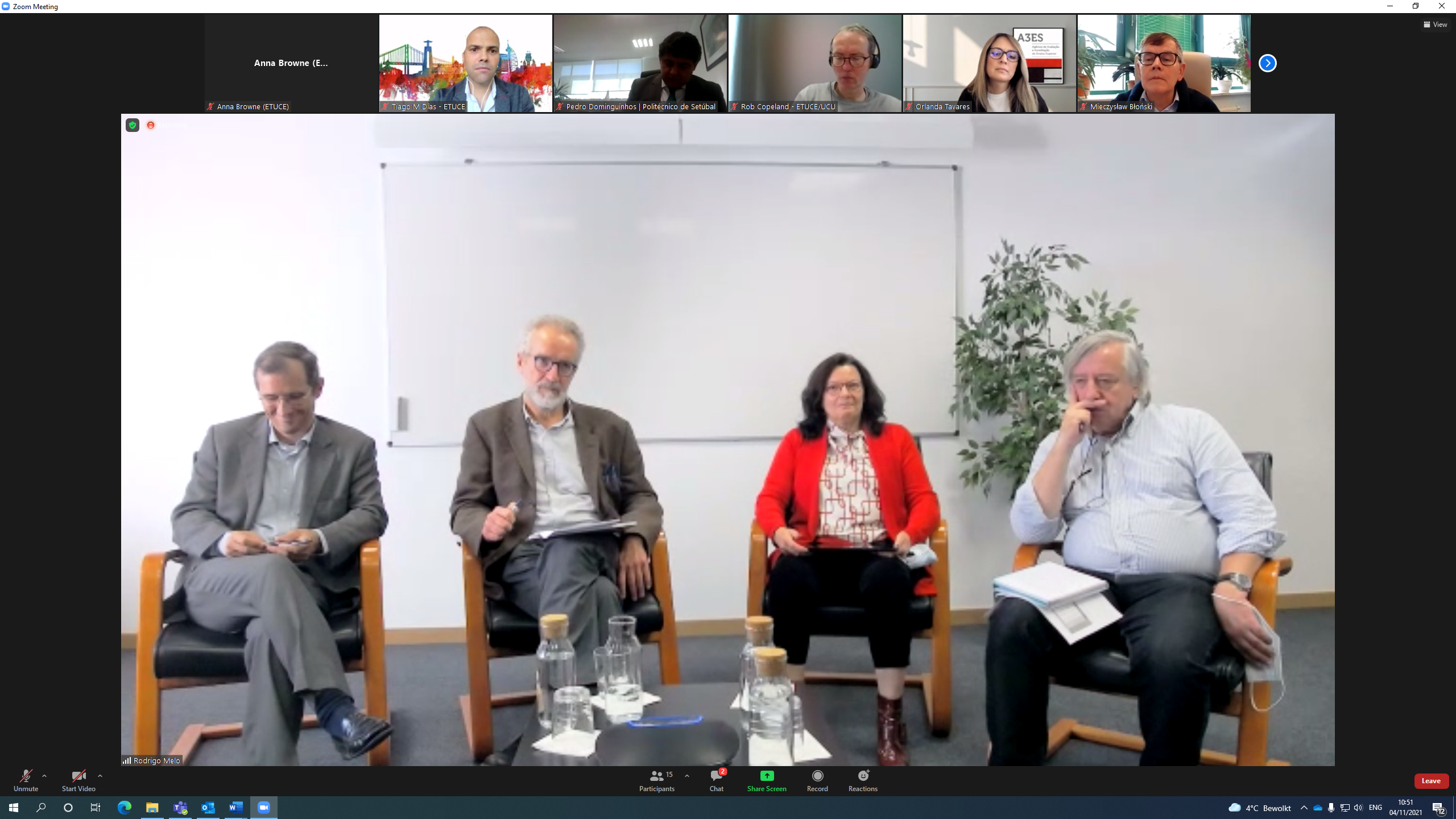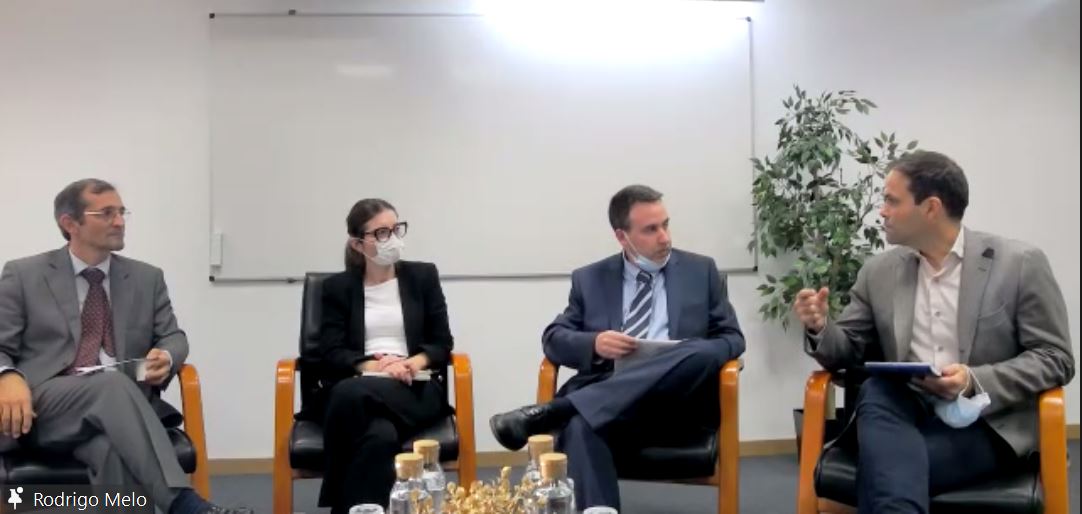Quality academic teaching must be based on meaningful social dialogue
Published:
On 3-4 November 2021, approximately 30 representatives from ETUCE and EFEE organisations representing education employers and trade unions in higher education met in hybrid format for the first Peer Learning Activity of the EFEE project on “Promoting Quality of Academic Teaching and Management”. The event hosted by the higher education social partners of Portugal linked to the work laid out by the European Sectoral Social Dialogue for Education Work Programme 2020-2021. The participants discussed some of the key issues of social dialogue and teachers’ working conditions in relation to quality teaching and assessment.
Education trade unions had an opportunity to discuss with the education employers the importance of social dialogue in ensuring high-quality academic teaching, and the need to extend the bargaining agenda. Research supporting the project highlighted some of the key challenges to honest and meaningful social dialogue, including the lack of appropriate social dialogue structures, preconceptions of what issues fall under social dialogue, and a lack of trust between employers and employees. Unless these challenges are faced, education trade unions fear that working conditions will continue to not be addressed by employers. Also, quality assessment frameworks based on the number of publications produced by teachers will put more and more pressure on teachers to focus on research, limiting the time they can give to quality teaching. Education trade unions underlined that assessment should be improved to generate quality teaching. Additionally, teaching and research assessment should be qualitative not quantitative, in order to improve the working conditions of the academics. However, participants heard from FENPROF speaker about the silent bureaucracy in Portugal that controls every aspect of teachers’ lives, and that Portuguese social dialogue has been suffering since the economic crash of 2008. Communication between education trade unions and the minister for education is severely lacking, making it difficult for education trade unions to express their concerns.

During the event ETUCE member organisations shared examples of social dialogue from Germany and Finland. In Germany, higher education policies are not linked to social dialogue on the collective bargaining agreements, therefore GEW attempts to broaden the bargaining agenda on issues such as student-teacher ratios and quality teaching assessments into the discussions. In Finland the current collective agreement being in place 2020-2022 helps with involving OAJ in discussions on teaching hours, new teaching methods, career models, and on merit-earning assessment. However, teaching assessment is still an issue, as graduate tracking is used to determine the funding higher education institutions receive. ETUCE is concerned that extending graduate tracking to the whole Europe will create an EU policy to motivate the EU Member States to change the structure of university funding based on the success of graduates in the labour market.
ETUCE member organisations underlined that although assessment criteria are crucial for ensuring quality academic teaching, the methods used should accurately reflect the work done in both research and teaching. To find this balance, the trade unions’ representatives argued that these issues should be decided through meaningful social dialogue. If teacher representatives are not involved in developing education policy which has an impact on the everyday work of the academics then the quality of academic teaching is put at risk.